2021 Dance Themes!
One of the highlights of each session is our camp dance.
Dances feature favorite group dances, like Footloose and Tragedy. There’s also our photo booth for some pictures with friends, special snacks and drinks like the “Soy Rogers” and “Shirley Chipmunk,” as well as a wide selection of games for those campers that prefer playing games over dancing.
Each of our dances has a theme, and campers and staff are encouraged to dress up to match the theme. Some people bring costumes from home, while others improvise using their clothes or making something at Arts & Crafts. Whatever you choose to do, we know you’ll have a great time at our dances.
This year’s dance themes are:
June Shaver Specialty: Hollywood
Come as your favorite celebrity or dress to impress as one of your favorite movie characters for this fun SoCal themed party!
Session 1: Pirates
Shiver me timbers matey! Session 1 campers will be walking the plank to fun with their peg-legs, eye patches, and other pirate accessories.
Session 2: Groovy Hippies and Tie-Dye
Let’s have some far-out fun in Session 2, when we enjoy the dance with our best hippie costumes, or your tie-dyed favorites.
Session 3: Halloween
Having a hard time coming up with a costume for Session 3’s Halloween dance? Any costume will do as we celebrate the one night of the year when people love costumes as much as we do on dance night.
Session 4: Winter Wonderland
It’ll be the end of August, but we’re going to dress like a blizzard is on the way for our Winter Wonderland dance for Session 4.
Mini Camp and August Shaver Specialty: Candy Land
It’s a night for sweet treats as we end the summer with a dance celebrating candy, or the board game Candy Land!
Penguin
Episode 63.
Soy is joined on the POG-Cast by longtime camper and brand new staff member Penguin. She and Soy talk about the Junior Counselor program, what it’s like to have a sibling at camp, and how GAC has changed her life. Soy also delivers a really great home improvement-based Joke of the Day.
Podcast: Play in new window | Download
Subscribe: Apple Podcasts | Spotify | Email | RSS
Sunshine and Michael Thompson
Episode 61.
For this very special episode of the POG-Cast we were joined by long time parenting and camp guru Michael Thompson, Ph.D. to talk about independence, life success, raising children in the modern world, and how camp can help with all of that. Dr. Thompson is the author of Homesick and Happy, which we offer to send to all of our first-year camp families.
This interview was originally recorded for Sunshine’s podcast, the Sunshine Parenting Podcast. You can find all of Dr. Thompson’s books at michaelthompson-phd.com/books/
Podcast: Play in new window | Download
Subscribe: Apple Podcasts | Spotify | Email | RSS
Research Finds Children Learn Social Skills At Camp
A few years ago, I conducted research on the impact camp experiences have on children’s social skills and happiness. This research was through the California State University, Fresno for my master’s degree thesis entitled, “The Perceived Impact of Camp Experiences on Youth Social Skills and Subjective Well-Being.”
“Friendship is the gold of childhood”
Michael Thompson, Ph.D.
Children and adolescents require more than intellectual growth and physical health to become happy, successful adults. They also need to develop the social skills necessary for positive relationships with others (Crosnoe, 2000). The importance of quality childhood friendships for well-being both during childhood and later in life has been clearly established, and many camp programs specifically focus on fostering those friendships, along with teaching, modeling, and practicing social skills.
Campers look like they’re having a lot of fun playing outdoors and learning new activities, but are they also learning life skills during just two weeks at a residential summer camp? That was one of the primary questions of this study, which examined the perceived impact of a two-week residential camp experience on children’s happiness and social skills development. Participants were 167 children ages 6-15 from six different two-week, residential summer camps in Arizona, California, and Colorado. The children completed an end-of-camp written survey during the summer of 2014 in which they were asked to rate (1-5) how much they thought their social skills were impacted by their camp stay. Did their social skills, for example, get a lot worse (1) or a lot better (5)?
Participants’ parents went on-line to complete the same survey two to four weeks after their child’s camp stay. Both children and parents reported significant positive changes in the children’s social skills and happiness as a result of their two-week camp experience, and 140 of 147 (95%) children reported improvement in their overall social skills.
Social Skills Improvement
| Social Skill | % of Campers Reporting Improvement | Mean Answer |
| Choose people who would be good to be friends with. | 64% (107 out of 156) | 3.91 |
| Get to know more things about my friends. | 74% (123 out of 155) | 4.18 |
| Enjoy being with my friends. | 69% (115 out of 157) | 4.17 |
| Help my friends have a good time when they are with me. | 64% (107 out of 157) | 4.03 |
| Find ways to meet people I want to be friends with. | 65% (108 out of 157) | 4.06 |
| Get to know people who I might want to become friends with. | 73% (122 out of 157) | 4.10 |
| Listen carefully to things that my friends tell me. | 60% (100 out of 156) | 3.94 |
| Understand my friends’ emotions. | 62% (103 out of 157) | 4.01 |
Focus on Friendship
Camp counselors, unlike teachers, view their primary role as one of facilitating friendships and positive experiences. They are also trained to help campers build social skills. At most camp programs, counselors participate in up to a week of training prior to the summer. Sessions include exercises in communication, leadership, and team building, during which counselors are trained to lead “ice-breakers” that help campers get to know one another and connect. Making friends is an important part of the camp experience, and with the help of their counselors, children learn and practice their friend-making skills. Given that camp programs emphasize forming new friendships and rekindling old friendships, the finding that children felt their social skills improved as a result of camp supports the hypothesis of this study and anecdotal testimonials. Not surprisingly, all campers (100%) reported making new friends at camp, with 99% of campers’ parents (132/133) reporting the same.
How many new friends did you make at camp?
| Number of New Friends | % of campers |
| 0 | 0% |
| 1-3 friends | 14% |
| 4-6 friends | 14% |
| 7-9 friends | 19% |
| 10 or more friends | 44% |
Note: 10 children (6%) did not answer the question.
How do camp experiences foster friendships and develop campers’ social skills?
While the specific mechanisms for social skills development were not part of this study, campers’ comments provide some clues as to why camp experiences help foster close friendships and improved social skills.
-
Sense of belonging and social acceptance, understanding their value to the camp community:
“I’m not exaggerating, camp is my favorite place on Earth. The people provide a sense of belonging and ‘welcomeness.’ I’ll be back next year!”
“I liked the freedom you are provided with and how many new friends you can make within two weeks!”
“Camp is really fun. It’s usually hard to make friends, but here it’s easy.”
“I liked bonding with my horse, my friends, and the counselors.”
“Camp is really fun and it’s usually hard to make friends, but here it’s easy.”
“I get to make new friends and grow better friendships with existing friends.”
-
Opportunity to practice skills like cooperation, altruism, and empathy:
“What I like best about camp is creating connections and having a new home.”
“What I like best about camp is hanging out with my friends.”
“Camp helps me come out of my shell.”
“It’s fun and I get to play with my friends.”
-
Improved ability to label emotions in facial expressions, more time in face-to-face communication (no screens!):
“I want to come back to camp to get away from electronics, and I really like this experience.”
“I liked that there are no electronics, like a cleanse.”
-
Opportunity to practice their conversation skills at meals, activities, around the campfire, during rest time and while walking around camp:
“I loved doing activities with my cabin group and just talking to them.”
“The best thing about camp is the bonding time you spend with your cabin mates.”
-
Meeting new people:
“I love camp and getting outdoors and meeting new people from places all over the world.”
“I loved all of the wonderful counselors and the friends I made.”
Children who live together in close quarters, share activity and meal times, and gather around campfires in discussion and games get an intense burst of time with one another and often report feeling closer to their friends at camp—with whom they spend only two weeks—than to their school friends. Because they are with each other so much and—at the six camps of focus in this study—are required to unplug from electronics, children at summer camp spend more time in intentional, directed conversation as compared to when they are not at camp. Trained counselors lead campers through team- and relationship-building activities throughout the day, skills that are more deeply developed thanks to increased face-to-face communication.
At camp, children are socializing with one another from the moment they wake up until the minute they fall asleep. They have time to internalize group social norms and learn appropriate social interactions by emulating counselors and fellow campers. For a child who has grown up in the same neighborhood or gone to the same school their whole life, camp may be the first opportunity to meet such a large number of new friends and interact with a diverse group of people. Campers get practice talking to new people, figuring out appropriate self-disclosure, and asking questions to get to know others. It’s no surprise that campers and parents believe camp improves social skills. Those two weeks each summer spent at camp may, indeed, be life changing. And new friends and improved social skills may be the reason!

REFERENCES
Crosnoe, R. (2000). Friendships in childhood and adolescence: The life course and new directions. Social Psychology Quarterly, 63(4), 377-391. doi: 10.2307/2695847
The Blessing of the Least Favorite Activity
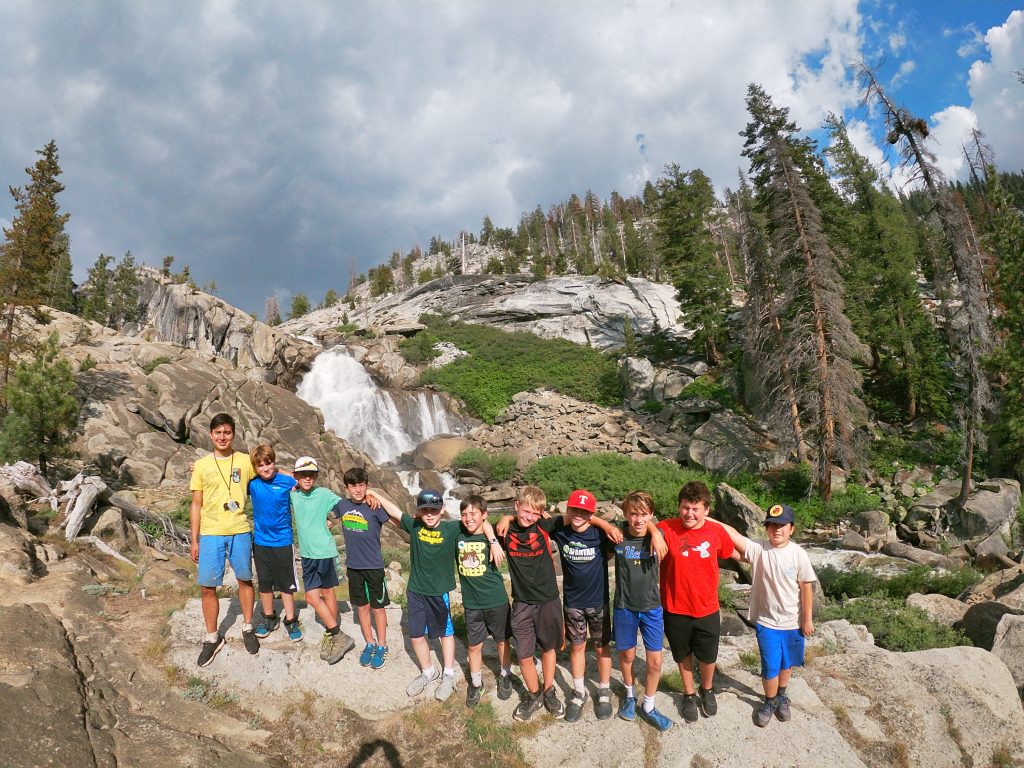
by Audrey “Sunshine” Monke
Wendy Mogel’s best selling book, The Blessing of a Skinned Knee, resonated with me. I can relate much of her message to camp and to my own family. I heard Dr. Mogel speak at a conference several years ago, and she continues to be active in the camp community. Many of our camp parents have heard her speak at school parenting events or have read her book. If you haven’t had a chance to read The Blessing of a Skinned Knee, I highly recommend it. In addition to sharing about the importance of letting our kids take healthy risks, and not always rescuing them from failure, Mogel gives many other valuable insights. She has recognized the value of camp experiences in the development of emotionally healthy kids, as you can read in the article “Camp Blessings” on her website.
A question I often get asked, especially by kids who haven’t yet been to GAC, is “What if I don’t want to do an activity?” Sometimes it starts with a statement, “I don’t like horses. Do I have to do that activity?”
My short answer is, “You won’t be forced to do any activities, but you will still go with your group, and you will be encouraged to try.”
I think there are three main reasons kids don’t want to do a particular activity, and they are the same reasons why adults often choose to forgo some recreational options:
1. A previous negative experience with the activity, usually not at camp and not with experienced instructors.
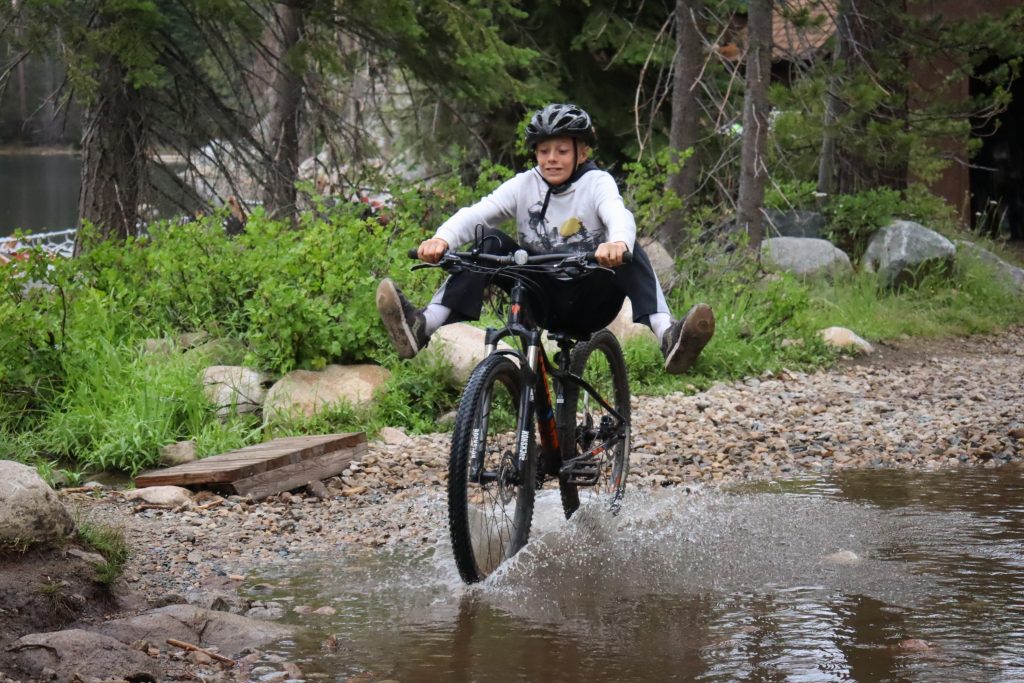
Falling off a horse, being dragged behind a ski boat and not getting up, or getting lost on a hike are all examples of negative experiences that make a person naturally inclined not to want to try again.
2. Fear!
Fear of being humiliated. Fear of failure. Fear of heights. Fear of deep lake water. Fear of rocks. Fear of going to the bathroom in the woods. Fear of getting hurt. The list goes on and on.
3. Based on their perception of themselves or their past successes/failures, they think they won’t like it.
It’s not in their normal repertoire of things they like and/or are good at.
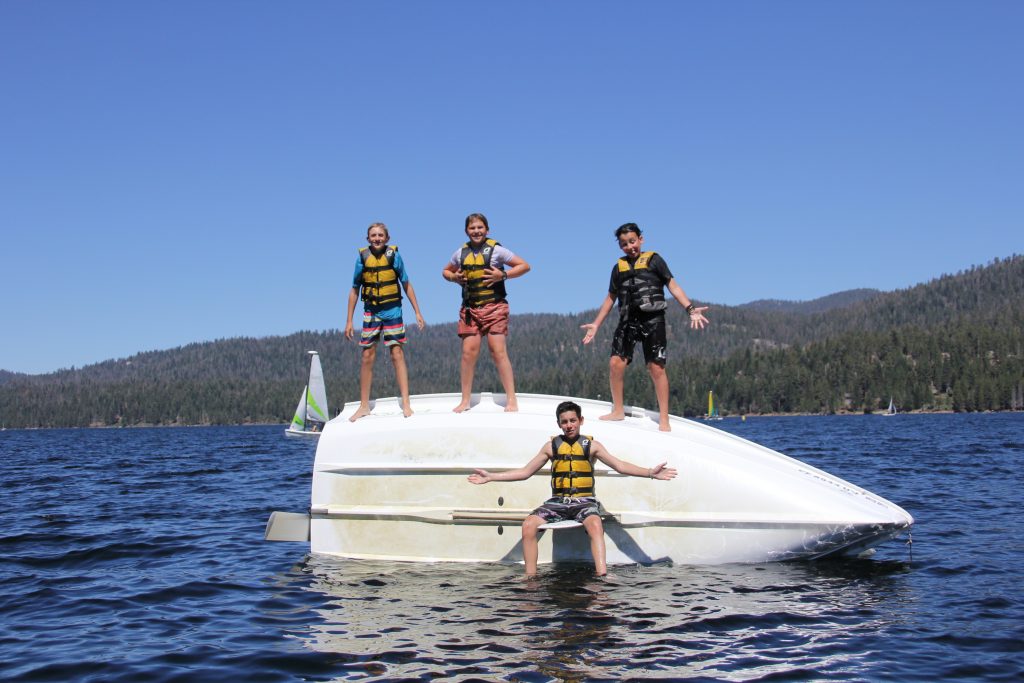
I’m sure there are other reasons for kids to not want to do an activity, but these are three that readily come to mind from what campers have told me over the years. Interestingly, the reasons kids don’t want to do an activity are the very reason for trying the activity and may be the best thing that happens at camp for that camper.
If a child doesn’t want to do an activity because of a previous negative activity, trying it at camp could lead to either a changed mind (and a new activity they like) or, at the very least, a not-as-negative experience to remember.
If a camper doesn’t want to do an activity because of fear, then trying the activity could be the most life-changing 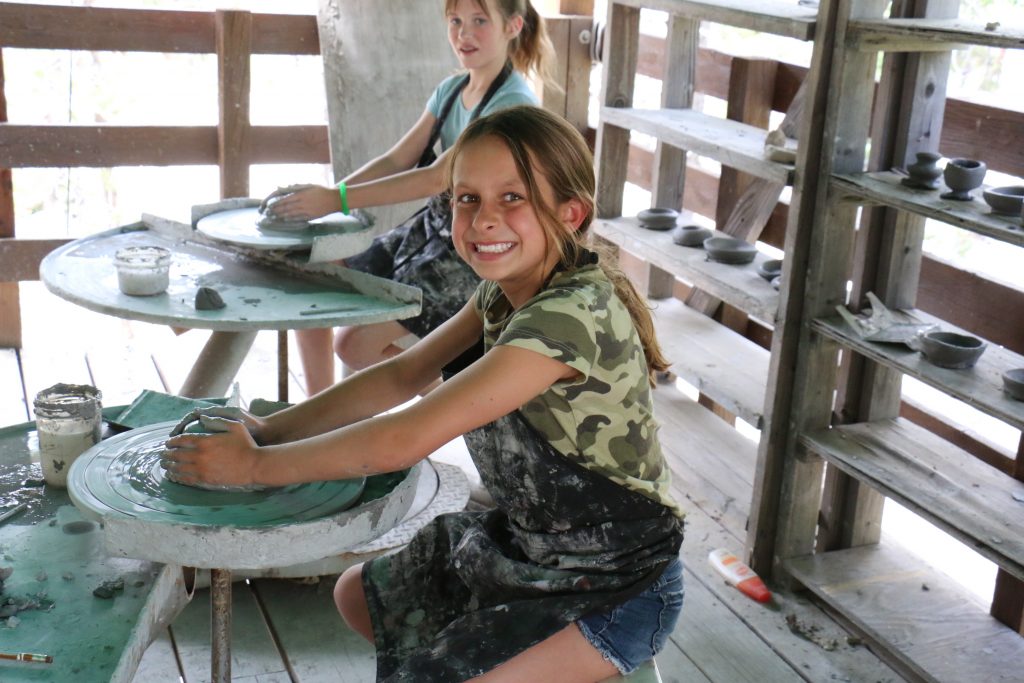 event that occurs for that camper during their camp stay. Overcoming fears and challenging oneself to attempt something that seems impossible can lead to great feelings of accomplishment and improved confidence. With the support and encouragement from cabin mates and counselors, campers feel on top of the world after successfully trying something they feared. For the camper with a fear of heights, climbing half-way up the ladder on the high ropes course will be celebrated as a huge accomplishment, and one that can make him/her proud. This is an example of something hard that leads to something good, a theme that Dr. Mogel stresses. The camp environment offers a supportive place for kids to learn how to overcome fears and accomplish things they didn’t think were possible.
event that occurs for that camper during their camp stay. Overcoming fears and challenging oneself to attempt something that seems impossible can lead to great feelings of accomplishment and improved confidence. With the support and encouragement from cabin mates and counselors, campers feel on top of the world after successfully trying something they feared. For the camper with a fear of heights, climbing half-way up the ladder on the high ropes course will be celebrated as a huge accomplishment, and one that can make him/her proud. This is an example of something hard that leads to something good, a theme that Dr. Mogel stresses. The camp environment offers a supportive place for kids to learn how to overcome fears and accomplish things they didn’t think were possible.
If a camper doesn’t want to do an activity because they don’t think they’ll like it based on their preferences or perception of themselves, trying something different offers an opportunity for expanded confidence. A camper who sees himself as non-athletic and more adept at target sports may shy away from the more physical activities, yet trying and accomplishing them could change his perception of himself in a positive way. A camper who likes shopping and clothes and sees herself as not an “outdoorsy” kind of person may dread going on a backpacking trip. Yet, the experience of cooking and sleeping outdoors could lead to an expanded view of herself and an appreciation for the many different facets of a personality. Sometimes, the activity a camper thought would be their least favorite becomes a favorite!
So, when a camper tells us all the reasons why they “don’t want to” or “can’t” do an activity this summer, we will continue to encourage them to “give it a try,” because we know the hidden blessings in the least favorite activity.
What One Week Of Camp Can Do For Your Child
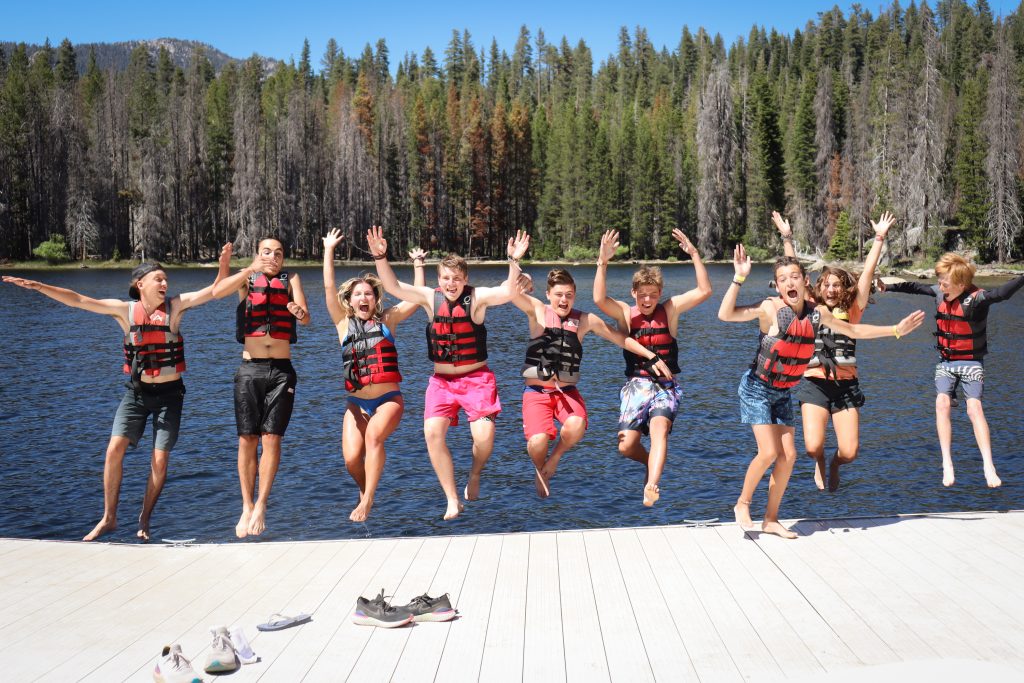
“My shy, quiet nine-year-old went to camp not knowing a soul. She came home transformed. She blossomed. She made friends, learned a multitude of activities, felt safe, loved, confident, and happy — really, really happy. As hard as it was on me, it was all worth it for her. It was the single best thing I have ever done for her.” – First-time camp parent
In today’s screen-addicted, fast-moving, ultra-competitive world, raising kids who grow into flourishing, kind, independent adults has become more challenging for parents. But research by the American Camp Association shows that even just one week at a quality summer camp program can benefit your child’s development of important life skills. In partnership with parents who are focused on their child’s healthy development, Gold Arrow Camp offers a positive, growth-focused outdoor experience that can help your child develop important life skills including independence, an appreciation for the outdoors, the ability to have fun while being unplugged from technology, and the social skills needed to make and keep friends.
The idea of having your child away from you for a week may seem scary at first, but the benefits of sending your child to one week of summer camp will last a lifetime. At camp this summer, your child will…
DEVELOP INDEPENDENCE
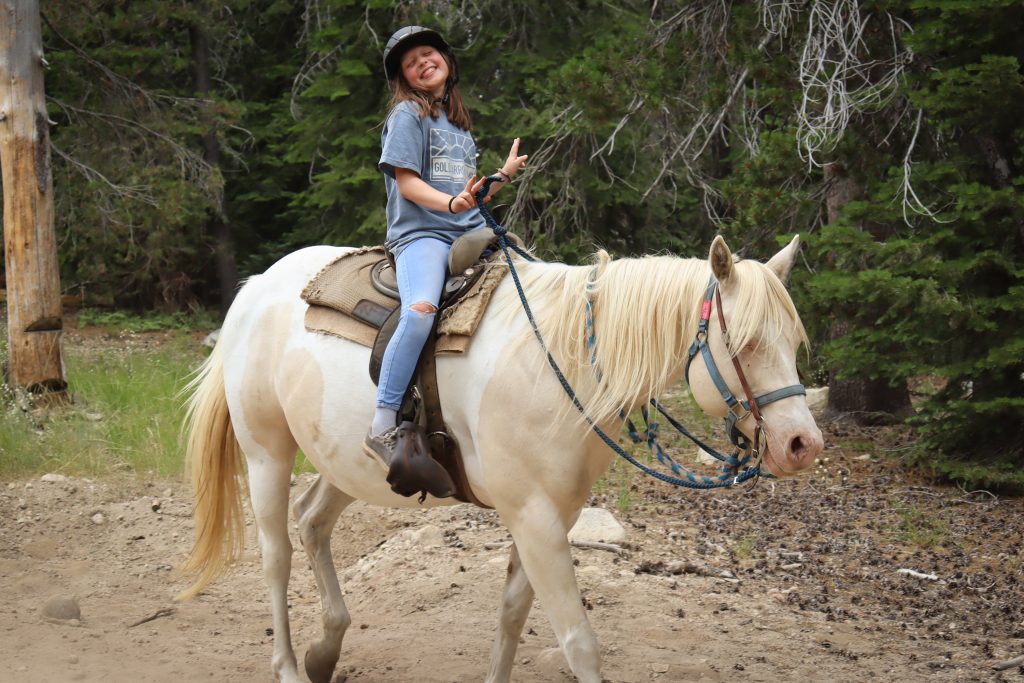
“Going to camp has made me even more independent and a much better people-person. I am able to go confidently up to someone and introduce myself, or hang out with someone new because of my time at camp.” – Five-year camper
Whether due to parenting trends or the constant electronic connection we have with our kids, children are much less independent than we were at their same age. Twenty years ago, we were babysitting infants at 13. Now, some of us hire babysitters for our 13-year-olds! By sending your child to camp, you give your child the opportunity to live and thrive without being with you and under your constant scrutiny. The growth in confidence and independence happen at camp BECAUSE you are not there. You can read more about why camp experiences help kids develop independence in Parking Your Helicopter.
EXPERIENCE OUTDOOR CHILDHOOD FUN & ADVENTURE
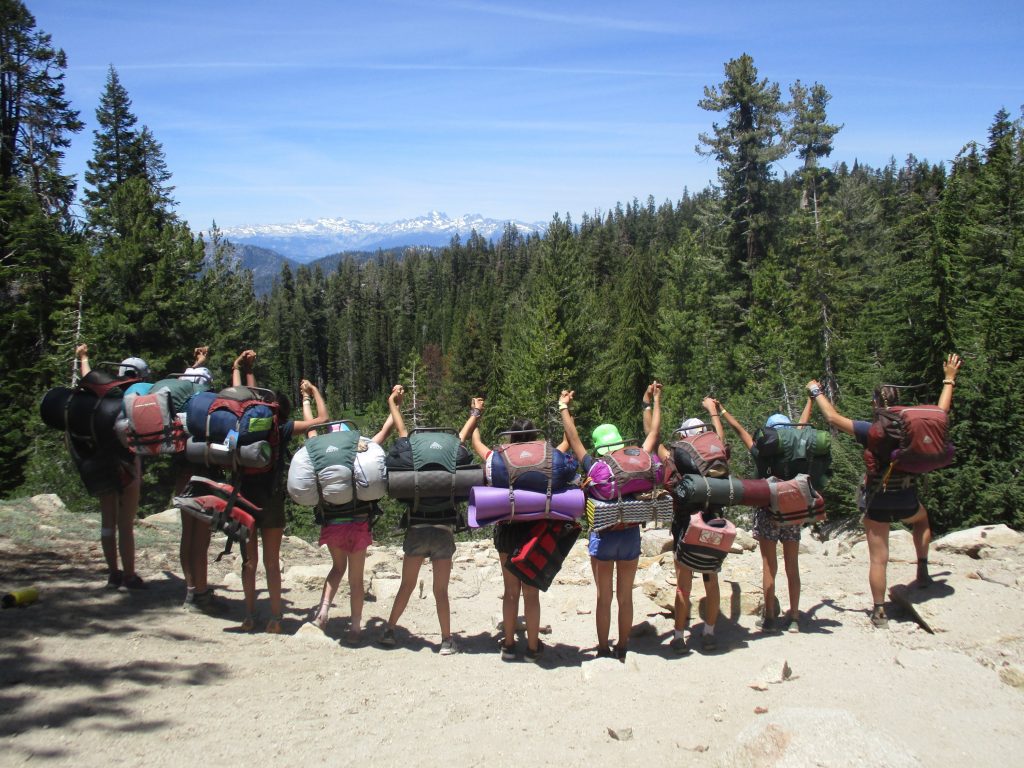
Most of the time our kids spend outdoors is during highly-structured organized sports, orchestrated by adults. Little time is spent just exploring, building forts, and appreciating the awesome view that hiking up a mountain trail allows. By sending your child to camp, you give your child the gift of magical childhood memories – dirt, adventure, story, and joke-filled days and nights spent with friends outdoors, under the stars, and around the campfire. These childhood memories will last forever. And, as Michael Thompson, Ph.D. So eloquently states, “Our best childhood memories do not include adults.”
GET UNPLUGGED
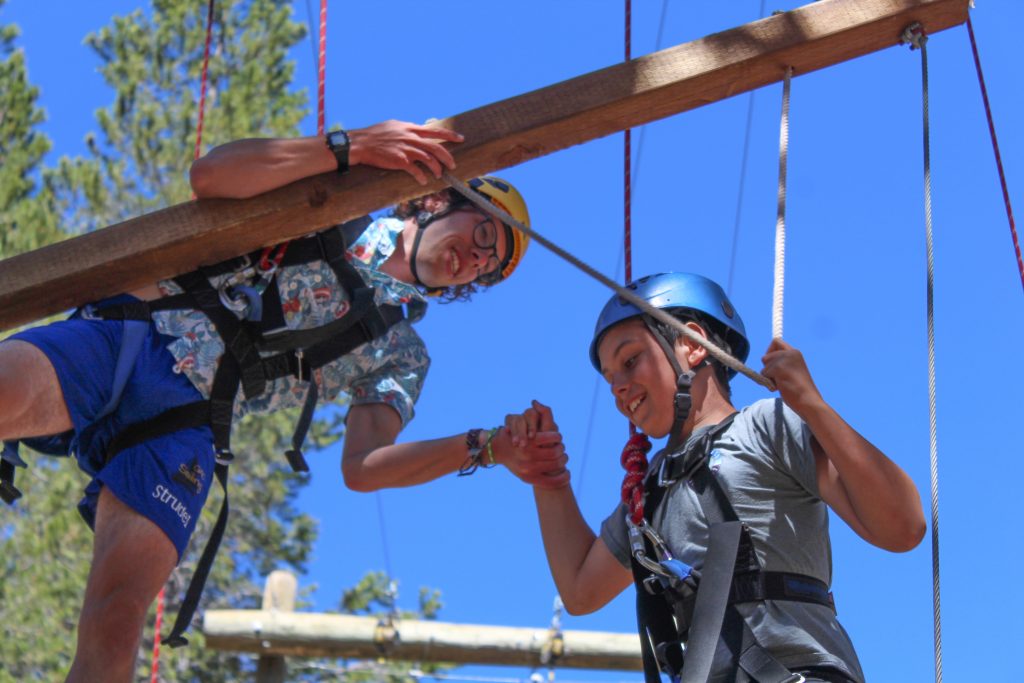
“Camp has helped me appreciate nature and the outdoors a lot more than I think I would have if I didn’t go. I can go without my phone or connection to social media awhile because camp has shown me that amazing stuff happens when you put your phone down and have a nice conversation with someone.” – Five-year camper
Whether checking to see how many people liked their Instagram posts, texting messages to friends, playing video games, or watching TV, our kids are spending a lot of their hours in front of screens. We parents are, too. By sending your child to camp, you are giving your child the chance to completely unplug and learn to better connect face-to-face with other kids and positive young adult role models. Getting unplugged is one of our favorite topics, so read more at Five Reasons to Unplug and Get Unplugged to learn about the many benefits of taking a break from technology.
BECOME BETTER AT MAKING AND KEEPING FRIENDS
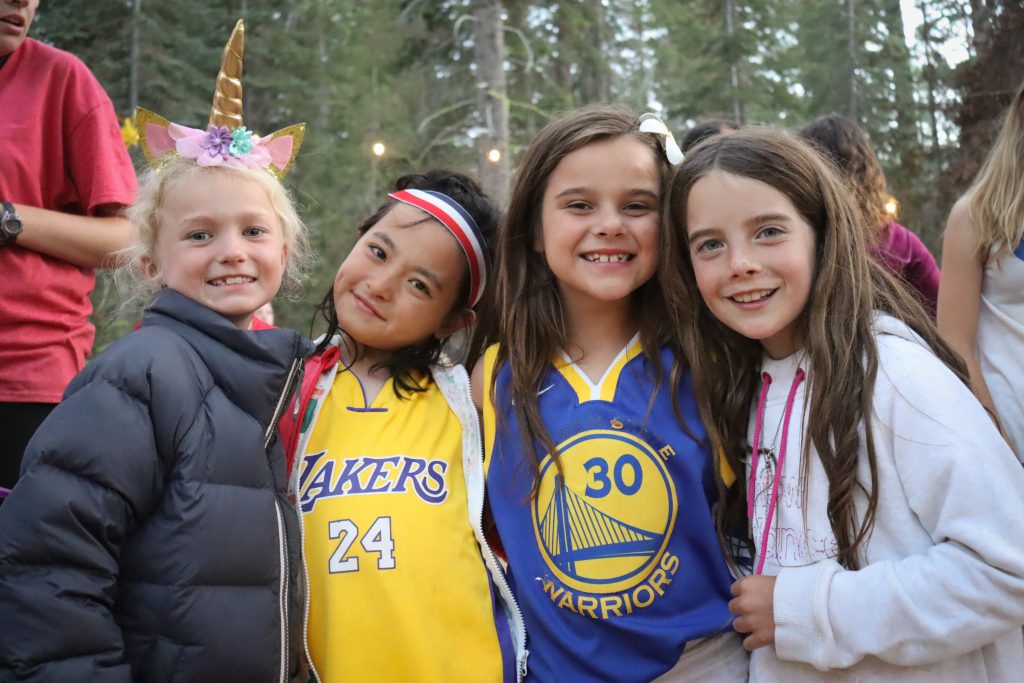
“I feel like I have become a kinder person and am better at making friends because of camp.” – Three-year camper
The bonding and friendships that happen at camp are different from those that occur at school and on sports teams. The intensity of living together and experiencing life together, without distractions, creates the ideal setting to form life-long friendships and really get to know people well. Read more about camp friendships in Friendship: The Gold of Childhood. You can also read the research that shows how camp helps develop important social skills.
Read more about the benefits of camp, hear what experienced campers have to say about their camp experiences, or watch a video about camp to learn more!

Too Much Screen Time? Camp Can Help!
By Audrey “Sunshine” Monke, originally published at Sunshine Parenting.
I’ve learned to face my fears, I’ve tried new things, and I have learned that you don’t always need to have your phone or video games.
-Kimberly, Camper
Children between eight and ten years old currently spend nearly eight hours a day on media. Adolescents average nearly eleven hours per day, seven days a week, on screens. The negative impact of this digital lifestyle is evident in kids’ expanding waistlines as well as their growing lack of interest in being outdoors. Now there’s an additional worry about the impact of our kids’ excessive screen use: anxiety.
In a New York Times article—Why Are More American Teenagers Than Ever Suffering From Severe Anxiety?—Benoit Denizet-Lewis writes, “Anxious kids certainly existed before Instagram, but many of the parents I spoke to worried that their kids’ digital habits—round-the-clock responding to texts, posting to social media, obsessively following the filtered exploits of peers—were partly to blame for their children’s struggles. To my surprise, anxious teenagers tended to agree.”
Anxiety is on the rise—among children, teens, and adults—and our screen time is exacerbating the issue. The problem is not just with teens. Adults are modeling this uber-connected life and experiencing a similar rise in anxiety. Ubiquitous screens are all that this anxious generation has ever experienced, and as parents, we can feel powerless to stop devices from overtaking our family’s lives.
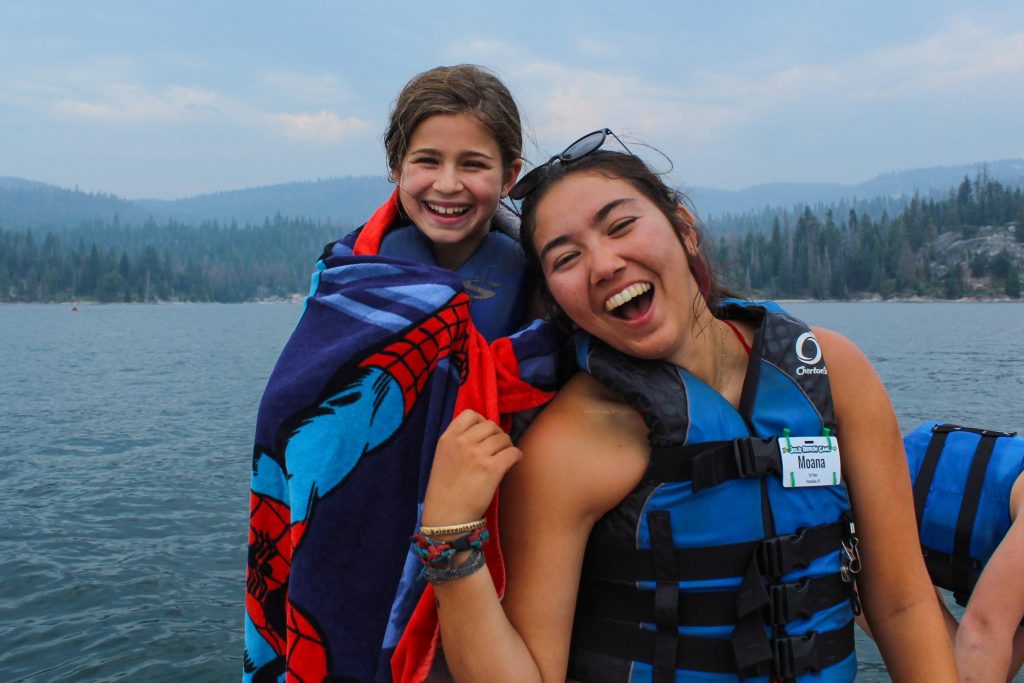
Whether sending or receiving SnapChat messages, watching YouTube videos, scrolling on Instagram, playing video games, or taking 100 selfies to find the best angle, our children are inundated with digital input while also feeling pressure to post the “right” things. The attraction of media is hard to resist, so most of us (including parents) simply succumb to having the near-constant presence of our electronics.
Many of us find it difficult to drag ourselves away from our laptops and smartphones, and often our schedules and lifestyles don’t allow for adequate time to just be outside and enjoy our natural surroundings. Richard Louv coined the term “Nature Deficit Disorder” in his book Last Child in the Woods to describe the alarming trend of children spending less and less time outdoors. Whether due to sensational media accounts of lost hikers that have fanned parental fears, or simply a lack of time in over-scheduled lives, children simply aren’t outside playing as much as they used to. Instead, they’re inside on their screens.
I don’t think anyone would debate that we all need to unplug more, but it’s very difficult to actually get kids off their screens, especially now that many schools are operating virtually, and most kids have their own smartphone by middle school.
Recently, I interviewed a mom who gave clear instructions before her twelve-year-old daughter’s birthday slumber party: devices would NOT be allowed. But this mom, unfortunately, is still the exception, not the rule. She lamented that when her kids go to other people’s houses, they complain that all the kids do is play on their devices the entire time. While we can get our kids to turn off and put away screens at home, it’s difficult to monitor them when they’re not at home. And, unfortunately, kids are drawn to homes where screens are not as limited.
While a few weeks at camp is not the only answer to all the screen and anxiety problems, camp experiences can be a great salve for our kids. Breathing fresh air, connecting face-to-face, and not worrying about “likes” and what they’re missing, kids relax and enjoy themselves. And they report feeling happier and less anxious.
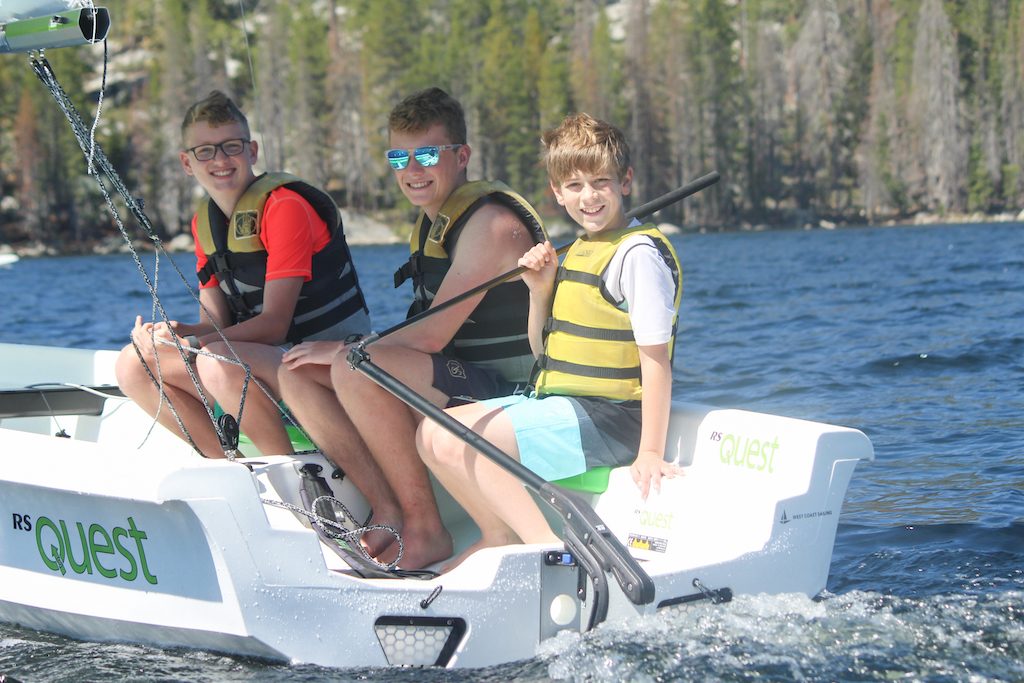
Here are four ways summer camp can help with the parenting challenge of too much screen time:
- DETOX:
Just being completely unplugged for a few weeks is a new and refreshing experience for kids—a true digital detox. Because they’re having fun and staying engaged and entertained, they get over their screen addiction quickly. And, because it’s a “cold turkey” approach with no ambiguity (everyone’s following the same rules), campers don’t push back against being unplugged like they do at home. - CHANGED PERSPECTIVE:
By experiencing screen-free fun and friendships, many campers express a new desire to spend less time on their devices once they return home. Campers and staff have frequently reported examples of providing leadership in asking friends to participate in phone-free times. - APPRECIATION FOR NATURE AND OUTDOOR RECREATION:
While counting shooting stars, appreciating spectacular views from a hike, or smelling the smoke from their campfire, campers aren’t thinking about their TV, video games, and cell phones. Instead, they are experiencing nature and being truly present with others. Many discover new outdoor activities they enjoy, and they are inspired to spend more time outside and in the moment once they return home. - BETTER FACE-TO-FACE FRIENDSHIP SKILLS:
Social interactions can be difficult, and many kids choose to keep interactions safely behind a screen. At camp, while sharing stories around the campfire and spending quality face-to-face time with new and old friends, campers gain more confidence in their social skills and are more likely to pursue real, face-to-face friendships upon returning home.
Getting kids off their screens — and convincing kids how good it feels to be unplugged — can be a real challenge. Summer camp can help.
GACtivism
Here at GAC, we’ve long believed that one of the things we empower our campers to do is to make positive changes in the world. We’ve spent a long time working with campers so that they can go back to their communities and share the kindness, friendship skills, and love of nature that they developed at camp.
Now we want to help campers change the world in other ways. That’s why we’ve launched what we’re calling GACtivism! Get it? GAC + Activism = GACtivism. Before he was a Camp Director, Soy was a high school government teacher for 14 years. In that time, he helped thousands of students write and send letters to their elected officials about important issues in their communities. Now he’s asking you to do the same:
To summarize the video, we know that we can operate camp responsibly in a world with COVID. We just need the state of California to give us guidelines for how they would like us to do it. We’ve been preparing on our own using the American Camp Association’s Field Guide for camps. However, we don’t yet know what California will require, and how it will align with the Field Guide. Whatever the state asks us to do to prevent the spread of COVID at camp, we’ll do, and we need to know what those requirements are now so that we can start planning for camp. We need your help to remind elected officials that camps like us need to know what the requirements for 2021 will be now–not right before the summer starts.
What can you do?
Go to savenextsummer.com, click on California, and follow the simple steps to send a letter to your elected officials. It might seem hard or scary, but it isn’t. You just have to let them know how important GAC is to you and how important it is that they help us get guidance for next summer.
We appreciate your help!
Gift A Piece of GAC
This summer a small work crew took the opportunity to replace the floor and foundation in Cabin 7. The cabin, which is one of the oldest buildings in camp was due for significant repairs, which involved lifting the building up so that a new modern foundation could be poured.

To start the process, the floor needed to be removed from Cabin 7. In the course of this work our long-time construction guru Stan “Doc” Engle realized that the floorboards didn’t look like they had ever been replaced since the cabin was built. In fact, on closer inspection, he realized that they had probably been milled at GAC by Manny Vezie and his crew when they originally built the cabins that are now known as the Quad.
We couldn’t just throw history like that away, so the boards were removed as carefully as possible and set aside. Buzz was commissioned to design a GAC specific piece of art that features the famous John Muir quote; “The mountains are calling and I must go.”
Now we’re thrilled to share the final project, which is carved and painted on a piece of Cabin 7 floorboard by Soy.
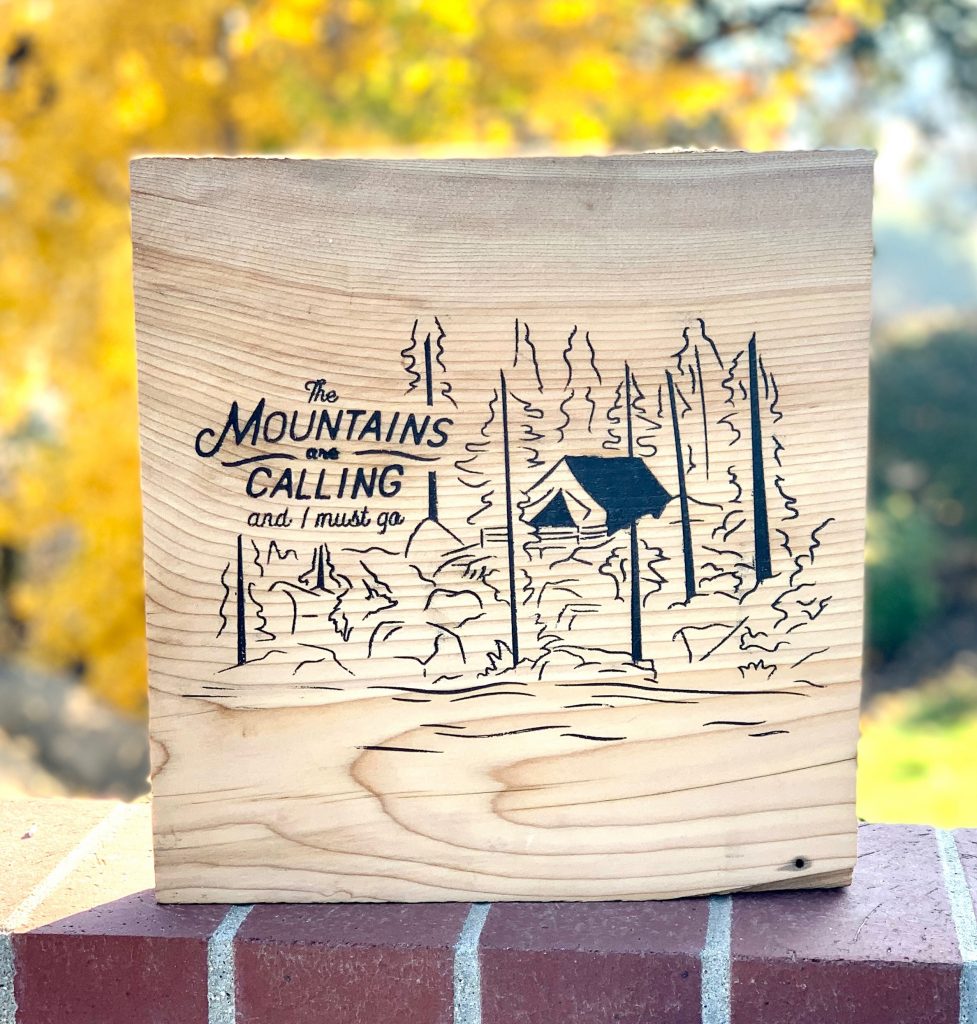
You can find this sign, as well as other great GAC-themed gifts at our online store: https://gold-arrow-camp.square.site/
Five (More) Reasons Great Parents Send Their Kids To Camp
There are so many reasons great parents choose to send their kids to summer camp. Several years ago, I shared five of them on the most popular post I’ve ever published. But now I have more to share. Consider this the second installment in a series with others to follow, because the list of ways kids benefit from summer camp is seemingly endless.
Since I last wrote about reasons great parents send their kids to camp, I conducted research and found that camp experiences positively impact campers’ happiness and social skills. I’ll begin, then, with happiness.
The first reason great parents send their kids to camp is that it helps them BE HAPPIER.
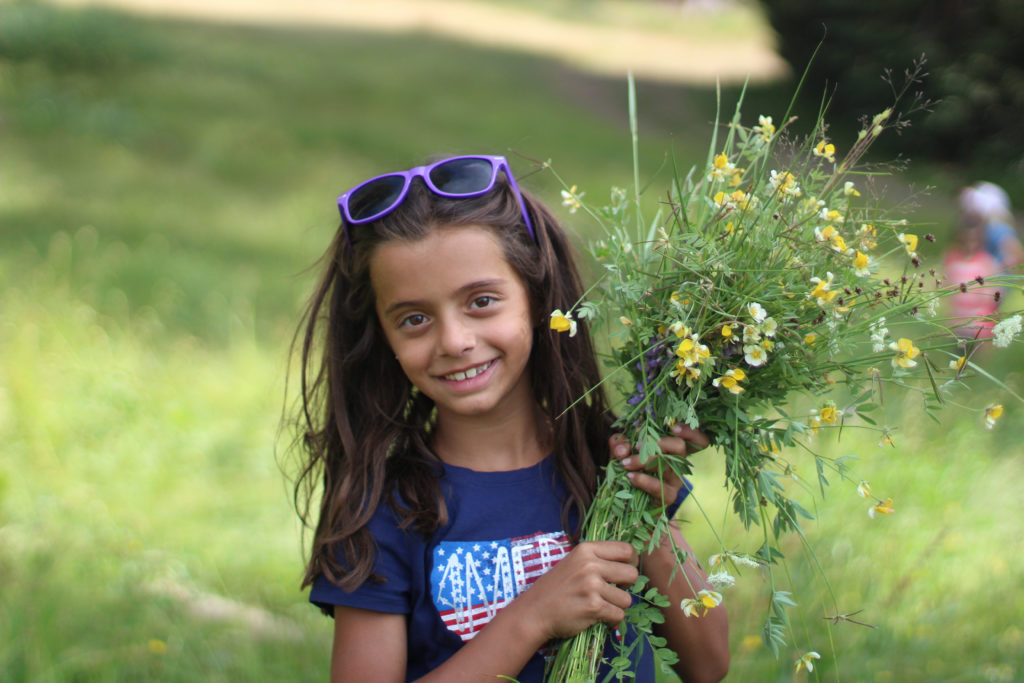
“Camp makes me happy and nothing can prepare me for life as well as this environment.”
“Come on,” you’re thinking, “How can two weeks in the mountains change my child’s overall happiness level?” Good question. One of my research findings was that both parents and kids agree that children feel happier after being at camp. The combination of positive emotions, deep friendships, being disconnected from technology, and just plain fun makes kids feel happier at and after camp I’ve previously written about how the science of positive psychology may explain why kids flourish at camp and demonstrate increased happiness levels before and after their camp experience. In this era, when we’re seeing our kids suffer from rising rates of depression and anxiety, isn’t it nice to know that there’s a place where kids can go that actually serves as a positive intervention for overall happiness?
Next, great parents send their kids to camp because it helps them DISCOVER THEIR BEST SELF.
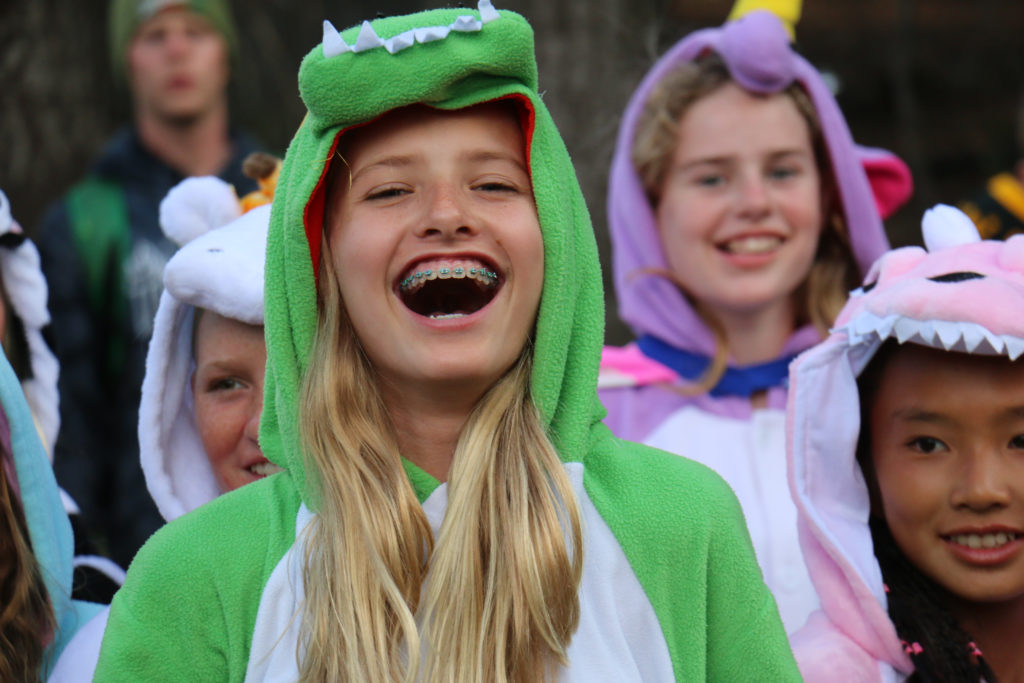
“Being at camp gives me this sense of belonging that I’ve never felt anywhere else.”
In many different ways, but all with the same underlying meaning, campers describe camp as a place where they can be themselves. They feel open to saying and being who they really are, not stuck conforming to what’s considered “cool” and “acceptable” in the outside world. Surrounded by a diverse group of friends of different ages and backgrounds, kids develop the ability to explore their own interests and express their own thoughts better. As a parent, I hate to admit that I sometimes push my own interests on my kids, even when I don’t mean to. For example, I might say, “You’re so good at softball! Don’t you want to keep playing?” when my child says she doesn’t want to play anymore. Stepping away from their regular activities and normal life schedules (as well as their well-meaning but often overly directive parents), kids have the opportunity to think through what’s really important to them as individuals.
Third, great parents send their kids to camp because it helps them GROW THEIR GRIT.
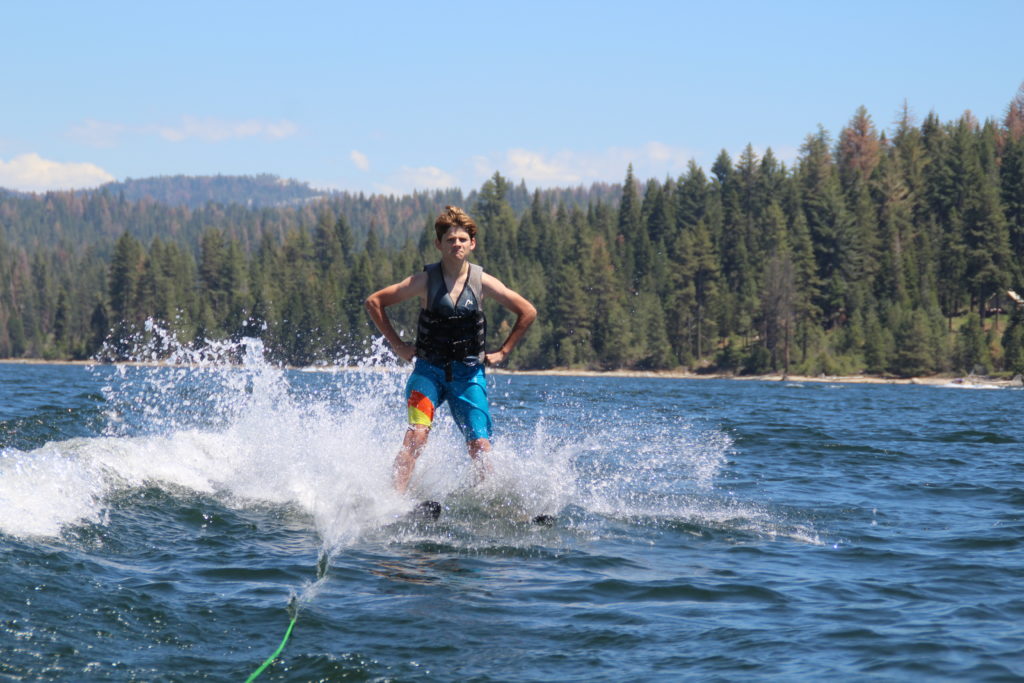
“The counselors challenged me to do things I wouldn’t normally do at home.”
Learning self-reliance, experiencing mistakes and failures, and reaching for goals are all camp experiences that help campers develop their grit, an important character trait that we’ve learned is critical to success in life. Camp offers a unique experience to children – the chance to be away from their parents for a short period of time and learn to handle more things on their own. Without parents to step in and assist, or rescue from mistakes, kids develop confidence in their own ability to make decisions and solve problems. Just being “on their own” is a huge confidence builder for kids, and they feel more self-reliant after being responsible for themselves and their belongings for a few weeks.
Fourth, great parents send their kids to camp because it helps them MEET POSITIVE ROLE MODELS.
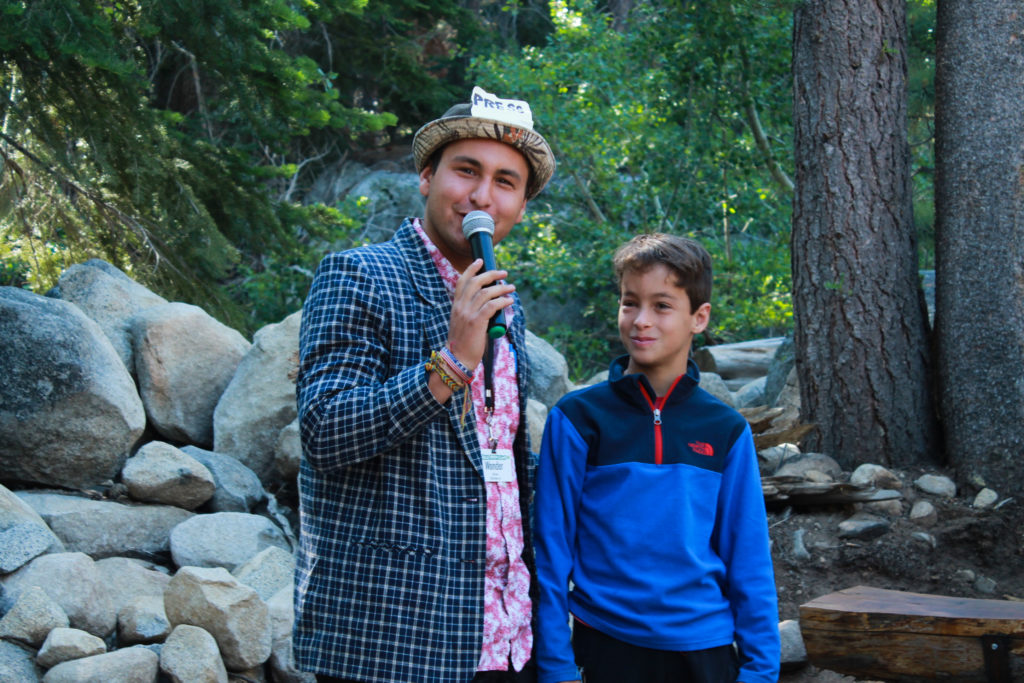
“Camp has made me into a leader, having the best role models as my counselors to look up to.”
One of the best things that happens at camp is that kids get exposed to a different kind of adult role model than what they see in the media. No reality TV stars will be gracing the waterfront or backpacking trips at summer camp. No perfectly coiffed and stick-thin model will be standing next to them brushing teeth in the bathroom. No macho guy who speaks disrespectfully about women will be leading the campfire discussion. In fact, the college students who choose to spend their summer working at camp are an outstanding bunch of young adults. Most are stellar students with outstanding leadership skills. They love the outdoors and working with kids, and they are the kind of people we want our kids to emulate. They love leading discussions on topics that are important to their campers and helping them build confidence. There’s no focus on appearance at summer camp, and so designer clothes, make up, and trendy hair-styles don’t hold the same importance that they do at junior high or high school. In fact, the predominant style at camp is pajama pants paired with dirt and sweat-stained t-shirts. And we hardly ever spend time in front of a mirror.
Finally, great parents send their kids to camp because it helps them DEVELOP BETTER COMMUNICATION SKILLS.
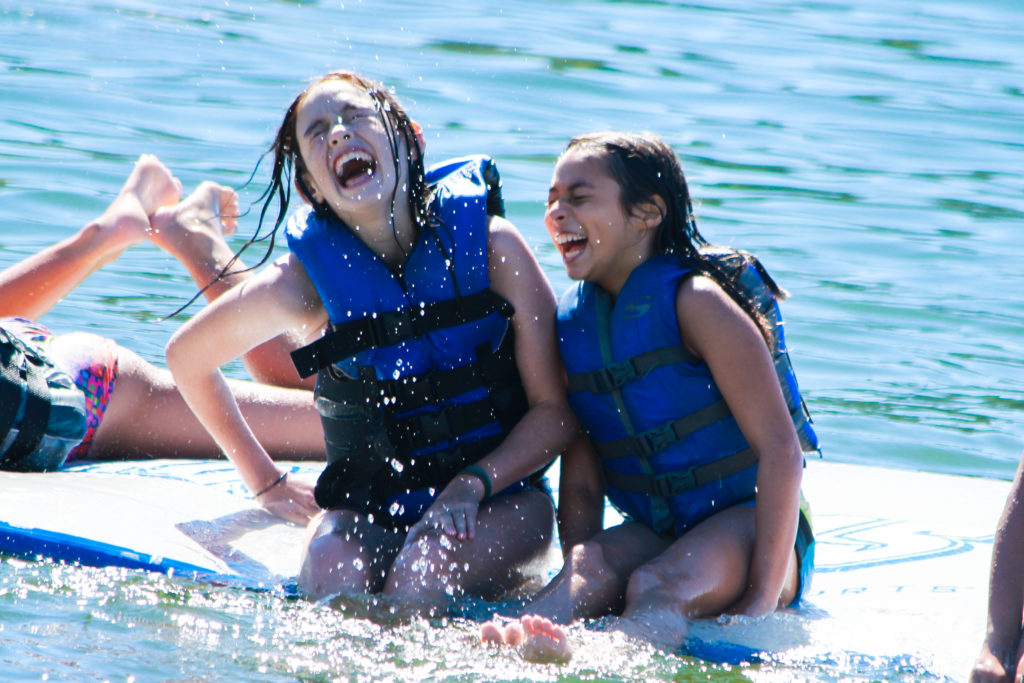
“The other part of camp that has influenced me the most is the simple idea of trying to always smile.”
In post-camp surveys, campers consistently write about how ditching their electronics was one of the best things about their camp experience. In fact, it’s a practice they take home with them, setting aside phones during meals with friends so they can connect more genuinely, face-to-face. In the absence of technological tethers, campers have many hours each day to practice these face-to-face communication skills. They learn the importance of things like eye contact, smiles, and body language as they positively interact with their peers. Counselors help facilitate lively discussions, and campers learn to ask each other questions, listen more carefully, and figure out common interests. Kids learn and practice valuable communication skills at camp, which they can use throughout their lives.
There you have it! Five (more) reasons that great parents send their kids to camp!
This post was originally published on Sunshine’s blog, Sunshine Parenting. For more camp-related posts, visit the “Summer Camp” page at her blog.
